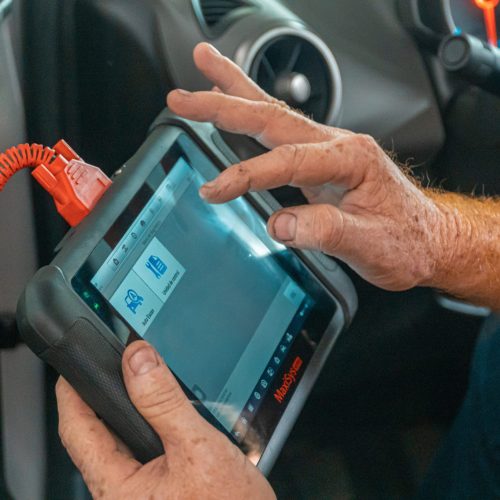
How to Get Your Used Car Inspected
Inspect Your Car Before You Buy It
Buying a used car is a great way to be economical and to save yourself some money. With those positives though, there can always be some concerns when it comes to buying a car that has had one or multiple previous owners. As the buyer, you don’t always know a whole lot about the car, how it’s been treated or maintained, if there are any quirks with it, or if there are any underlying issues that might come up after you’ve already paid for the vehicle. All of these things can make it a little intimidating to buy a used car but buying a used car doesn’t have to be scary, there will always be risks involved with used products, but there are ways to minimize the risk by inspecting the prospective car thoroughly.
When you think about a pre-purchase inspection there doesn’t seem like there would be a lot of down sides to it right? You get a more in-depth knowledge of the vehicle without the actual investment into buying the car…but there are in face some down sides to the pre-purchase inspection process. Depending on whether the car you are interested is local or not, the inspection process can be challenging. Firstly, you are responsible to set up the inspection with a trusted mechanic. If you are local to the car you are looking at, this might not be a big deal, although if you are farther away or even out of state, this can become a lot more challenging. First you have to find a mechanic that you do trust and then you have to go through the process of matching up the schedule of the seller with the schedule of the mechanic. In some cases, you might even be responsible to get the vehicle to and from its inspection appointment. These can be challenging tasks especially if you’re working all of this into an already full schedule. Another thing to remember is that you will have to pay for a pre-purchase inspection – inspections aren’t always cheap and it’s important to remember that you will be making an investment into the vehicle regardless of whether or not you end up going through with the purchase or not. On the flip side, when or if you do choose to have your prospective vehicle inspected you could potentially end up saving yourself thousands of dollars by finding out issues undisclosed by the seller before you go ahead and invest thousands into the car.

We covered this a little bit in the last section, but we want to go through the actual logistics of getting a pre-purchase inspection for your potential vehicle. First things first, you want to make sure that you are serious about purchasing the car. Remember, it’s an investment to get a vehicle inspected and you want to know that buying the car is a serious option. Once you’ve decided you’re serious about the purchase, you’ll have to let the seller know that you would like to get a pre-inspection – if the seller agrees to this your next step will be finding a trusted mechanic. This can be a tricky task if you are looking a vehicle out of state – but doing your research and finding a reputable mechanic that has experience with the make and model of car that you are wanting to buy will help. Once you find a mechanic that you trust you can let them know that you are wanting to get a car into them for a pre-purchase inspection – then the more challenging tasks comes of getting schedules to match up between seller and mechanic, although some sellers might require you to transport the vehicle to the mechanic which could make the scheduling aspect a little bit easier. After the mechanic is able to do a full inspection, they will let you know what type of things you might want to look out for, what issues they found, or if the car looks to be in good shape. This should help you decide what you want to spend on it or if you even want to move forward with the sale. This information could always come in handy if you intend to bargain with the seller – if you know the vehicle needs some repairs you can always use that information to possibly get the car for a little better of a price.
Although there are a great many benefits to getting a pre-purchase inspection, remember that there are some ways to sift through some of the cars that might need more work without actually paying for a mechanic to look at them. Simply Getting a pre-purchase inspection isn’t the only way to figure out if a seller is reputable, sometimes asking the right questions can go a long way and save you a lot of time and effort in buying a used car. It’s good to talk to the seller about why they are selling and what issues they’ve experienced in the last few years. You can even feel free to ask them for any maintenance records they might have as well as what their maintenance schedule looks like. All of these questions can help you sift through vehicle information and maybe even give you a better idea of whether you want to move forward with the purchase or not.
Ultimately the choice is yours on whether or not you end up having a pre-purchase inspection done on a vehicle you’re interested in, but hopefully we helped in understanding the process as well as where to start.
